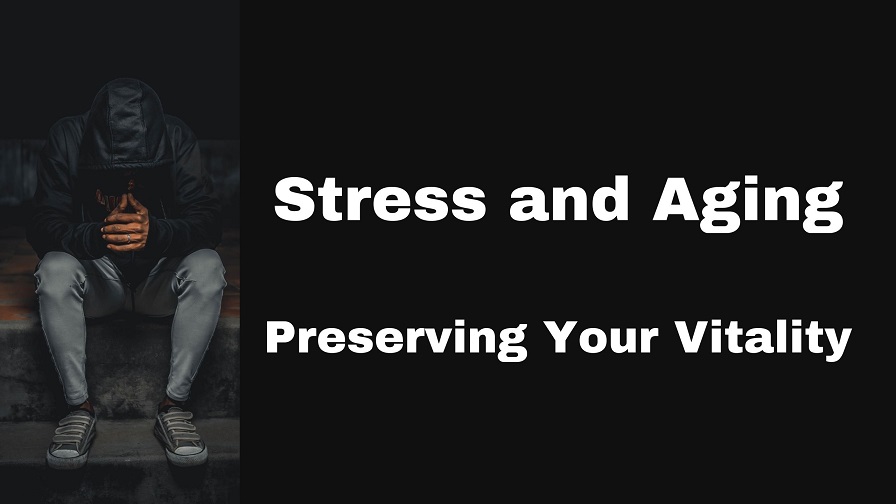Stress and Aging: Preserving Your Vitality
Aging is a natural and inevitable process that changes our physical, mental, and emotional well-being.
While aging is a part of life, the impact of stress on this process cannot be underestimated. Chronic stress can accelerate aging and contribute to various age-related health issues.
However, with the right strategies & a proactive approach, you can preserve your vitality and well-being as you age.
This article explores the intricate relationship between stress and aging and provides valuable insights into maintaining a vibrant and healthy lifestyle.
Understanding the Impact of Stress on Aging
Cellular Aging: Chronic stress accelerates cellular aging by shortening telomeres—the protective caps at the ends of chromosomes. Shortened telomeres are associated with a higher risk of age-related diseases.
Inflammation: Stress triggers inflammation, which can contribute to developing the chronic diseases like heart disease, diabetes, and cognitive decline.
Cognitive Health: Prolonged stress is linked to cognitive decline & an increased risk of neurodegenerative diseases such as Alzheimer’s.
Immune System: Chronic stress weakens the immune system, and making you more susceptible to infections and slower healing.
Physical Health: Stress can contribute to cardiovascular issues, hypertension, gastrointestinal problems, and musculoskeletal pain—all of which impact overall health.
Strategies for Preserving Vitality and Managing Stress
Stress Management Techniques
Incorporate stress management techniques into your routine, such as meditation, deep breathing, yoga, and mindfulness. These practices help lower stress levels and promote relaxation.
Physical Activity
Regular exercise boosts cardiovascular health, releases endorphins, and reduces stress. Choose activities you enjoy, whether walking, swimming, or dancing.
Healthy Diet
Adopt a balanced diet rich in antioxidants, vitamins, and minerals. Consume plenty of fruits and vegetables, whole grains, lean proteins, and healthy fats to support your overall health.
Adequate Sleep
Prioritize sleep and aim for at least 7-9 hours of quality sleep each night. Sleep is essential for cellular repair, cognitive function, and stress reduction.
Social Connections
Maintain strong social connections with friends and family. Meaningful relationships provide emotional support and contribute to a sense of well-being.
Mind Engagement
Challenge your mind with activities that promote cognitive health, such as puzzles, reading, learning new skills, and engaging in creative endeavors.
Hydration
Stay hydrated by drinking the right amount of water daily. Hydration supports cellular function and overall bodily processes.
Mindfulness and Relaxation
Incorporate mindfulness techniques into your daily life routine, like deep breathing exercises & progressive muscle relaxation.
Limit Stressors
Identify sources of chronic stress and take steps to minimize their impact. This could involve setting boundaries, seeking therapy, or practicing effective time management.
Regular Health Checkups
Schedule regular health checkups with your healthcare provider to monitor your overall health & detect potential issues early.
Conclusion
Aging is a natural process, but the impact of chronic stress on this process can be mitigated with the right strategies.
By incorporating stress management techniques, maintaining a healthy lifestyle, and seeking social connections, you can preserve your vitality and well-being as you age.
Remember that a proactive approach to managing stress enhances physical health and contributes to a positive mindset and overall satisfaction.
Embrace the aging journey with grace and the knowledge that you’re investing in a vibrant and fulfilling life by prioritizing stress management.
Thanks for visiting How To Cure Stress

